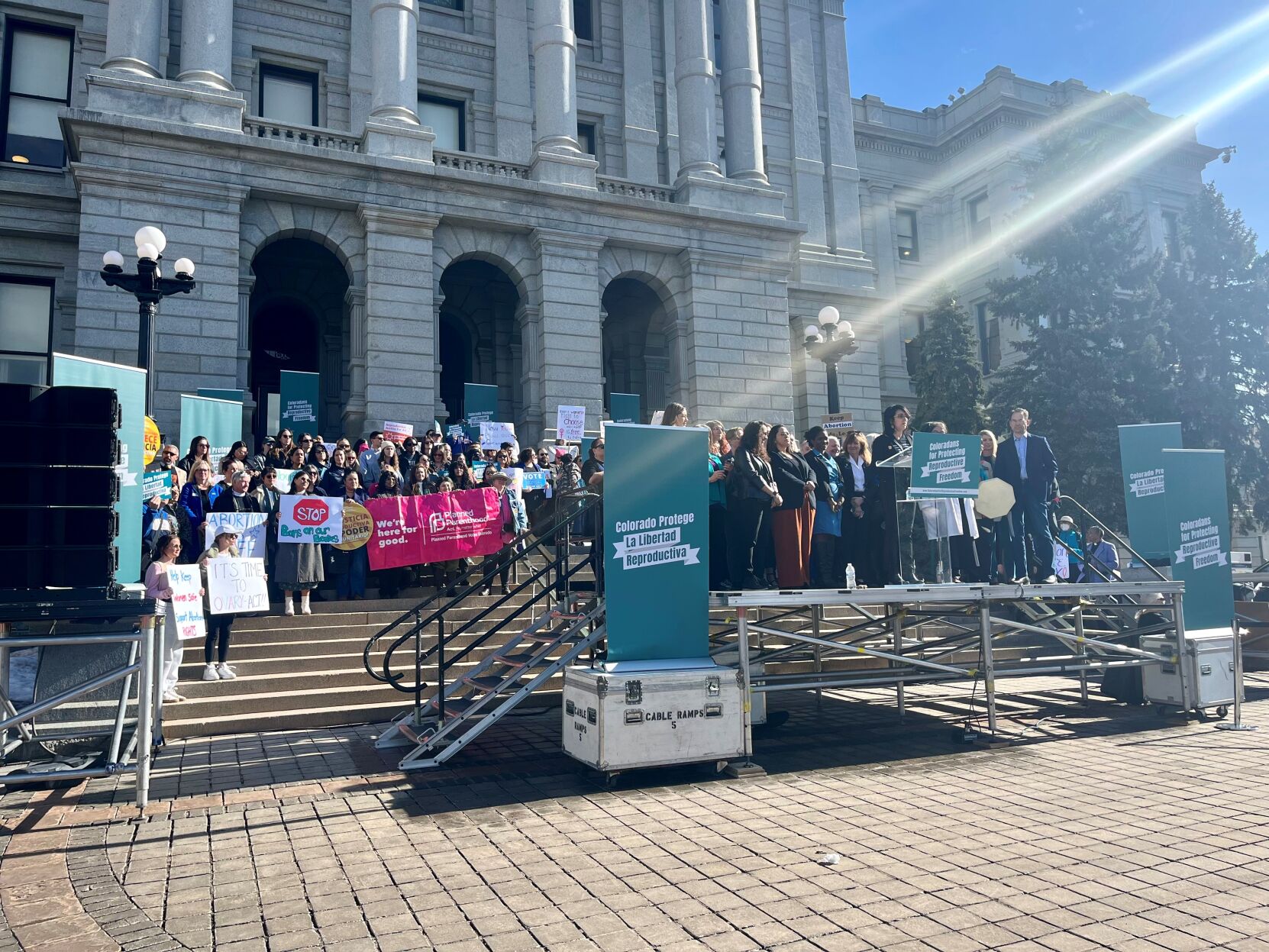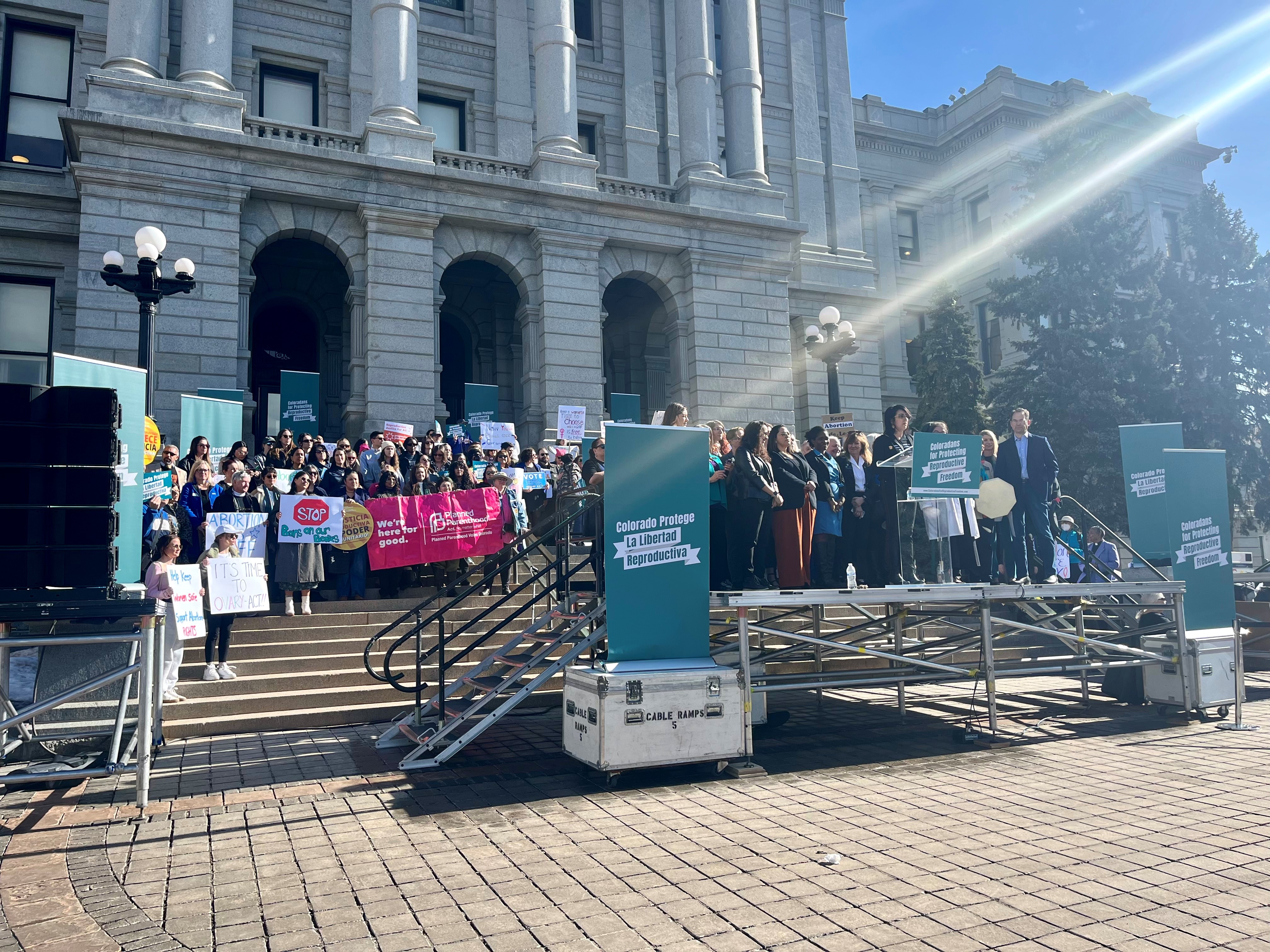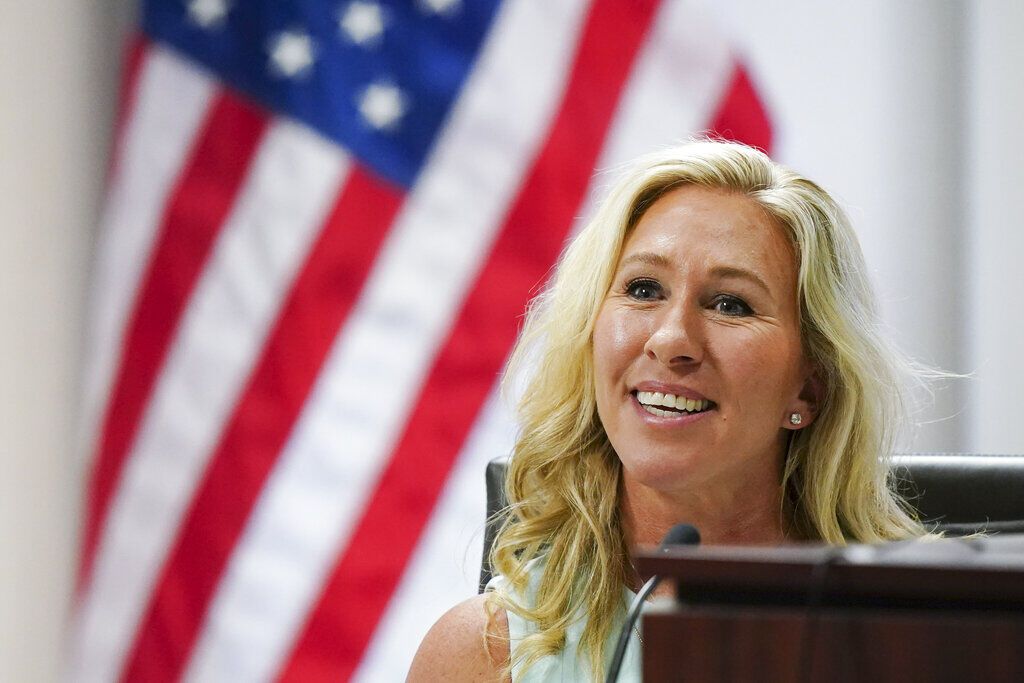Dueling abortion measures could hit Colorado ballot this November

Two initiatives seeking diametrically opposed outcomes on abortion rights in Colorado may be appearing on the election ballot in November.
One measure wants to ask voters to identify a fertilized egg as human at the moment of conception. Another measure seeks to put the right to an abortion in the state constitution.
The proposal, which carries the title “Protections for a Living Child,” defines a “living human child” as a human from the moment of conception, rendering all abortion illegal. The ban does not include exceptions for cases of rape, incest or risks to a mother.
“It is not necessary to intentionally cause the death of a child,” the ballot measure states. “Medical personnel shall not purposefully destroy lives. Living children must not be dismembered, scalded, poisoned, or caused fatal harm through inhumane treatment.”
In 2022, a similar initiative did not make the official ballot after failing to meet state signature requirements.
Faye Barnhart, executive director of A Caring Pregnancy Resource Center of Northeast Colorado and a designated representative of the ballot measure, said the 2022 attempt was a “trial run.”
She is confident this year’s version will make it to the ballot, she said.
“This will help Colorado in the long term in many, many ways, including increasing our mental health situation,” she said. “It will lower depression, anxiety, suicidal tendencies, and drug dependence. It will help us long-term with increased finances for Colorado.”
She added: “It will help us with our greatest natural resource, which is our people, and it will help our moms and our dads in every aspect of their lives. It will help them to be whole and thrive and will help us be able to refer mothers to non-violent resources that are already available in the state.”
Barnhart called the ballot measure a “win-win for everybody.”
On the other side of the debate, advocates for reproductive rights are pushing for a new amendment to the Colorado Constitution that would protect an individual’s right to an abortion. The proposal would also repeal a 1984 amendment prohibiting the use of state funding for abortions. Under the current ban, abortions for government employees and Medicaid recipients are not covered by insurance.
Lawmakers enshrined abortion as a fundamental right under the Reproductive Health Equity Act, which Gov. Jared Polis signed into law in 2022. Among the most permissive in the country, the legislation affirmed in state law the right to choose an abortion or carry a pregnancy to term. Fertilized eggs, embryos and fetuses do not have independent rights under the law, and it prohibits state and local public entities from denying or restricting a person’s right to use or refuse contraception, or to either continue a pregnancy or have an abortion.
Democrats successfully pushed for the measure a few months before the U.S. Supreme Court overturned of Roe vs. Wade.
Dusti Gurule, president and CEO of the Colorado Organization for Latina Opportunity and Reproductive Rights, the amendment aims to enhance abortion protections. She said a constitutional amendment provides more security against attempts to undo abortion protections in the future.
Gurule was one of several speakers at an event outside the Capitol on Jan. 22, when advocates collected signatures for the measure.
To get a measure on the official ballot, both proposals need to collect 124,238 valid signatures from registered voters. The signatures have to be submitted in April.
Since the abortion rights amendment would require making a change to the Colorado state Constitution, it faces a higher hurdle. The amendment must not only receive signatures from 5% of the total number of votes cast for the office of Secretary of State in the previous election – 124,238 – but those signatures must also include 2% of all registered voters in each of the state’s 35 Senate districts.
In addition, a constitutional change requires the approval of 55% of the vote, as opposed to a simple majority.
This poses a particularly challenging task in predominantly conservative districts, such as Senate District 1 in the northeastern part of the state.
“I would say the majority of Senate District 1 is pro-life,” said Republican Sen. Byron Pelton, who represents the district. “That was one of the questions that I get asked every time I’ve run for election: ‘Are you pro-life?'”
While Pelton is skeptical the petition would gather enough signatures from his district, he said it is possible.
Gurule is optimistic supporters could garner enough support statewide.
“We have a lot of really good partnerships and relationships throughout the state,” she said. “We also know that Coloradans throughout the state in every county and every Senate District, even people from other parties, support protecting and expanding abortion care. We’re very confident that we’re going to get the signatures that we need.”

marissa.ventrelli@coloradopolitics.com

hannah.metzger@coloradopolitics.com












